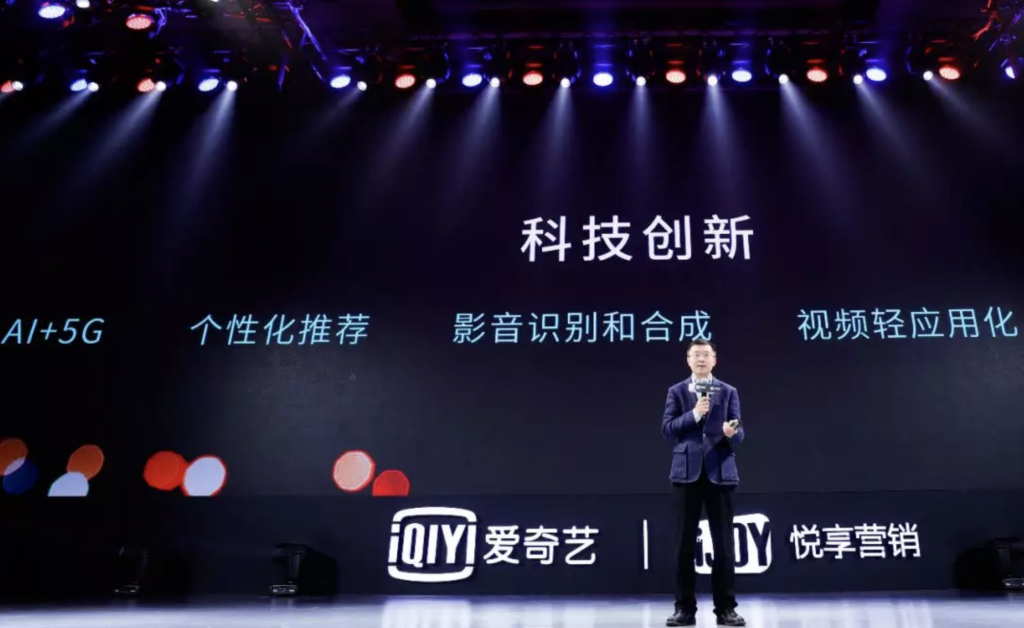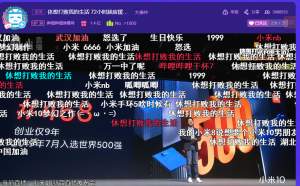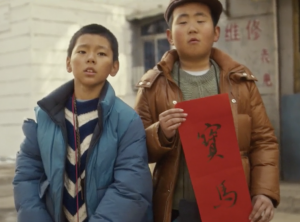
IQiyi founder and CEO Gong Yu onstage during the company’s annual advertiser event
It’s investment season for the Chinese TV and video industry. Over the past week or so, the major satellite networks and streaming services have been busy presenting their strategic plans and 2020 content offerings to advertisers and media. We’ll have more updates on the latest programming trends and brand offerings over the coming weeks.
The big four satellite networks (Hunan, Dragon, Zhejiang, and Jiangsu) each have a somewhat different content emphases relevant to brands seeking to position their products.
- Hunan Satellite TV emphasizes the youthfulness of its audience, with “little fresh meat” stars and trending subject matter, along with IP adaptations.
- Dragon TV favors a diverse array of urban dramas with realistic subject matter to draw a more mature, city-dwelling audience.
- Zhejiang Satellite TV also focuses on realistic urban series, though its programming has a more concentrated focus on themes of law and spycraft.
- Jiangsu Satellite TV’s lineup is smaller, but without a specific content focus, and includes a romantic series and medical drama.
Hunan Television subsidiary Mango TV is one of China’s few profitable video services, reporting a 40% increase in net profits to RMB 800 million ($113 million) in the first half of the year and a 62% increase in advertising revenues. In the first 6 months of 2019, it boasted 7 of the ten most-viewed streaming reality shows. At its ROI Festival last week, it highlighted several factors that set it apart from the competition:
- It is positioning itself as the video destination for Chinese youth. Nearly 80% of its viewers are female, and it is the youngest of the major streaming services, with 60% of its audience under the age of 24.
- Mango analyzes user preferences to develop the direction of future content creation. Under its “Big Mango Plan” the service will promote user-generated content as well, including, for example, the submission of scripts.
- Mango promotes itself as a one-stop shop for brand integration, offering content creation, e-commerce channels, celebrity ambassadors, social media promotion, offline events, and other methods of exploiting the full IP industry chain.
At Hunan Satellite TV’s ROI Festival, Huang Libo, deputy director of the advertising department at Hunan Satellite TV, emphasized that content is the only effective medium for brands. Lifestyle-oriented, “slow” reality shows offer more opportunities for deeper brand integration as products can be shown being used extensively in daily life scenarios. The association of brands with celebrity guests on these shows also helps to improve their visibility and desirability among fans.
China’s three biggest video-streaming services (iQiyi, Youku and Tencent) and six major production companies issued a joint statement vowing to strengthen self-discipline and promote the healthy development of the TV industry. Last year, under pressure from regulators, the same parties jointly announced a pay cap for actors, and now they are following up by targeting other excessive costs, corrupt practices and gray-area transactions, with stated plans to cooperate in blacklisting violators.
Tencent’s hit summer fantasy drama “The Untamed” (陈情令) continues to top charts despite having aired its finale two months ago, thanks to Tencent’s savvy in exploiting the show’s IP and the popularity of its stars:
- Two concerts were organized, one in Bangkok and one in Nanjing, featuring the show’s stars performing its soundtrack, which had previously sold millions of copies.
- The show’s Taobao store offers collaborations with major brands on products ranging from cosmetics to plush dolls.
- Future plans include a big-screen adaptation and games.
- However, fans have complained of feeling squeezed for money by Tencent’s strategies, such as requiring existing Tencent Video subscribers to pay extra for advance access to the series finale.
Domestic automaker Borgward ran a celebrity livestreaming campaign that moved beyond the straight selling of products to add entertainment in a variety show format. Three celebrities — Lei Jiayin, Shou Gonggeng and Kiki — called on their fans to watch via Weibo, Bilibili, Douyin, Kuaishou, and Taobao, drawing roughly 4.6 million viewers and selling more than 1,600 vehicles during the two-hour livestream. This shows how merging creative content with direct sales opportunities can have a powerful and easily measurable impact for brands.
Cadillac released a short film to introduce the rear-wheel drive concept to consumers. Titled “Without ___, There’s No ___” (没有___ 不算___), the three-minute video offers answers from 13 individuals from a wide range of social backgrounds, and encouraged viewers to complete the sentence in their own manner, to viral effect.
Mengzhilan Liquor sponsored the Pingyao International Film Festival as part of an effort to establish a connection between the brand and artistic endeavors and high-end social drinking, as opposed to the more prevalent cultural practice of business-oriented drinking. The brand’s distinctive blue bottles were placed prominently throughout the main festival dinner, where director and festival organizer Jia Zhangke toasted with the liquor and expressed his thanks to Mengzhilan.
Gucci and Tencent collaborated to release a series of short travel films featuring Chinese artists, musicians, and actors that have worked with Gucci. The first film in the project follows singer Li Yuchun in Rome as she visits the Angelica Library and other venues.
Airbnb collaborated with four young Chinese artists to stage an exhibition at Beijing’s UCCA Center for Contemporary Art inspired by traditional cultural heritage. “Intangible Courtyard” features furnished, home-like interiors with contemporary artworks that reinterpret traditions such as paper-cutting and dragon dancing. It is part of a broader effort by Airbnb to promote China’s intangible cultural heritage among travelers in the country.
News in English
- A report from GroupM takes a look at the current state of Chinese video services and their users, noting how fierce competition is spurring innovation, as the services focus on the future of interactive content by developing series, establishing interactive video standards, setting up technology platforms for creators, and providing funding. Its user data shows that paid subscribers of iQiyi, Youku and Tencent trend younger and more educated than non-paid viewers, while Mango TV’s paid subscribers are relatively older. Group M
- IQiyi held its annual iJoy Conference for advertisers and partners last week, with key executives outlining the company’s plans for the year ahead. Among the areas of focus are AI-powered marketing and developing 5G capabilities, and iQiyi plans to invest RMB 20 billion ($2.83 billion) in more than 200 new releases in 2020. PR Newswire
- Disney hopes to expand the influence of Star Wars IP in China through a partnership with China Literature to produce a series of 40 web novels in Chinese. The studio has thus far struggled to gain a large Chinese fanbase for the franchise’s movies. Radii
- Universal Beijing Resort announced a partnership with Alibaba to digitize the park with Alibaba’s facial recognition technology ahead of the theme park’s planned 2021 opening. Variety
- In the wake of controversies involving the NBA and numerous other American brands in China, relatively few consumers think U.S. companies should try to exert an influence on overseas political and social issues, according to one poll. Morning Consult
- Senior citizens are making themselves seen and heard on Douyin, highlighting the short video app’s broader appeal in China as compared to TikTok in the U.S. Global Times
- Meanwhile in India, TikTok has formally launched the EduTok platform for learning, following the huge success of this summer’s #EduTok challenge, which saw the creation of 10 million instructional videos that were viewed a collective 46 billion times. Quartz
We’ve Got China Covered
- CFI: TikTok Hires Former Congressmen to Review Content Policies Amid Scrutiny
- Jing Daily: Six Tactics From Taobao’s Top E-commerce Livestreamer Viya
- Jing Travel: The Art of Cultural Livestreaming






